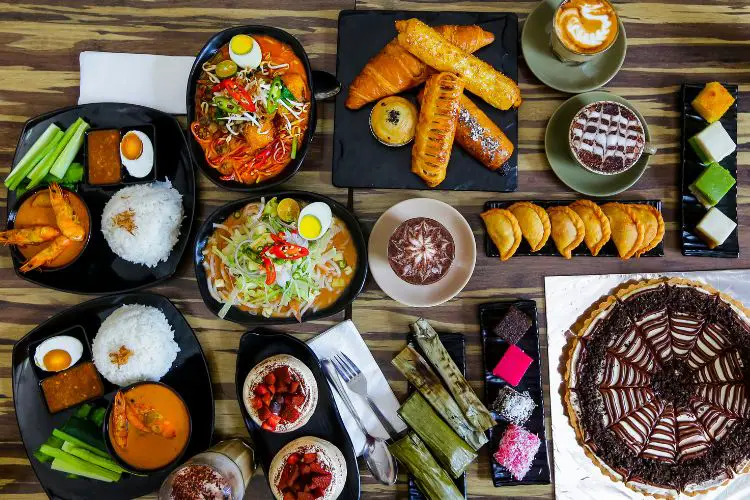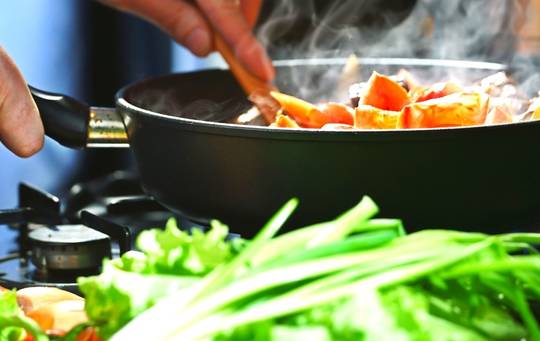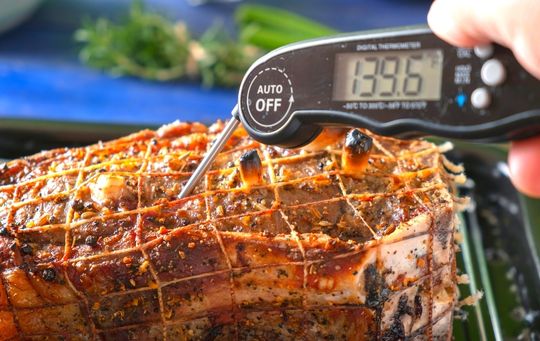Bringing Food into Singapore from Malaysia (Nov 2023)

Bringing food into Singapore from Malaysia involves adhering to strict regulations and guidelines to ensure biosecurity and food safety. Travelers should be aware of prohibited items, such as fresh fruits, vegetables, meat, and dairy products, and limitations on quantities for certain permissible items.
Aspects of Bringing Food into Singapore from Malaysia
| Aspect | Bringing Food into Singapore from Malaysia |
|---|---|
| Prohibited Food Items | Prohibited items include fresh fruits, vegetables, meat, meat products, dairy products, and certain fresh eggs. |
| Quantity Restrictions | Limited quantities are allowed for some permissible items, subject to strict guidelines. |
| Declaration and Compliance | Travelers should declare any food items and adhere to Singapore’s import regulations to avoid confiscation and legal consequences. |
| Food Safety and Biosecurity | Singapore enforces strict regulations to maintain food safety standards and protect its environment and agriculture. |
| Check with Authorities | It’s crucial to check with the relevant authorities for the latest guidelines before traveling with food items. |
Key Takeaways

Why Are There Regulations on Bringing Food into Singapore?
Singapore has stringent food import regulations in place for several important reasons:
- Food Safety: Ensuring that all food consumed in Singapore is safe is a top priority. Stringent regulations help maintain high food safety standards.
- Disease Control: Regulations prevent the introduction of diseases or pests that may not exist in Singapore, safeguarding local agriculture and ecosystems.
- Environmental Preservation: Singapore places a strong emphasis on environmental conservation. Restrictions prevent the import of items that could harm local flora and fauna.
- Supporting Local Agriculture: The government encourages self-sufficiency in food production and limits the import of certain agricultural products to support local farmers and producers.
With these goals in mind, Singapore has established specific regulations regarding the import of food, including cooked and uncooked items.
Bringing Cooked Food into Singapore
Let’s start with cooked food, which generally has fewer restrictions compared to uncooked items:
1. Personal Consumption
The Agri-Food & Veterinary Authority of Singapore (AVA) allows travelers to bring small quantities of cooked food for personal consumption. This means you can carry some of your favorite Malaysian dishes with you to enjoy during your stay in Singapore.

2. Declaration Is Crucial
Upon arrival in Singapore, it’s essential to declare any cooked food items you’re bringing with you to the customs officers. Failure to declare these items can result in penalties or confiscation.
3. Specific Restrictions
While cooked food, in general, is allowed, there are specific restrictions to keep in mind:
- Poultry: Cooked poultry, such as chicken or duck, is subject to restrictions. It must be boneless and fully cooked.
- Eggs: Cooked eggs are allowed, but they should be hard-boiled.
- Seafood: Cooked seafood is generally permitted, but avoid bringing in raw or uncooked seafood, including sashimi.
- Pork: Cooked pork is allowed, but it must be fully cooked and boneless.
4. Commercial Quantities Require a License
If you plan to bring cooked food into Singapore in commercial quantities for sale or distribution, you will need to obtain a license from the AVA.
This requirement primarily applies to businesses and vendors rather than individual travelers.
5. Source Food from Approved Establishments
To ensure food safety, it’s advisable to source your cooked food from reputable and approved establishments in Malaysia.
Avoid buying from unregulated or street vendors, as their safety and hygiene standards may not meet Singapore’s requirements.
6. Proper Packaging
When bringing cooked food, ensure it is securely packaged to prevent spillage or contamination during transit. Use airtight containers or food-grade packaging to maintain the freshness and quality of the food.

Bringing Uncooked Food into Singapore
Bringing uncooked food into Singapore requires careful consideration and adherence to regulations:
1. Declaration Is a Must
Just like with cooked food, you must declare any uncooked food items when you arrive in Singapore. Be honest and accurate in your declaration to avoid legal consequences.
2. Strict Restrictions
The import of uncooked food is subject to strict regulations due to the potential risks associated with foodborne illnesses and pests. While it is possible to bring some uncooked food items, you should be aware of the following:
- Fruits and Vegetables: Certain fruits and vegetables are prohibited due to the risk of pests. Check the AVA’s official website for a list of permitted items.
- Meat and Poultry: The import of raw meat and poultry is generally prohibited due to the risk of diseases. Only fully cooked, canned, or certain processed meat products are allowed.
- Fish: While some fresh fish may be permitted, it’s essential to check the AVA’s guidelines for specific requirements and restrictions.
- Eggs: Uncooked eggs are generally prohibited due to the risk of Salmonella contamination.
- Dairy Products: The import of raw milk and certain dairy products is prohibited due to the risk of bacterial contamination. Only commercially processed dairy items are allowed.
- Pet Food: The import of pet food, including raw pet food, is subject to strict regulations to prevent the introduction of diseases or pests.
3. Commercial Importation
If you plan to import uncooked food items for commercial purposes, you must obtain the necessary permits and licenses from the AVA.
Businesses dealing with food importation must adhere to Singapore’s food safety and hygiene standards.
Conclusion
Bringing food into Singapore from Malaysia can be a delightful experience for travelers and food enthusiasts.
However, it’s crucial to understand and comply with Singapore’s food import regulations to ensure a hassle-free and legal process.
Whether you’re carrying cooked dishes or uncooked ingredients, proper declaration, adherence to restrictions, and sourcing from approved establishments are essential steps.
By following these guidelines, you can savor the flavors of Malaysia while respecting Singapore’s commitment to food safety, disease control, and environmental preservation.





